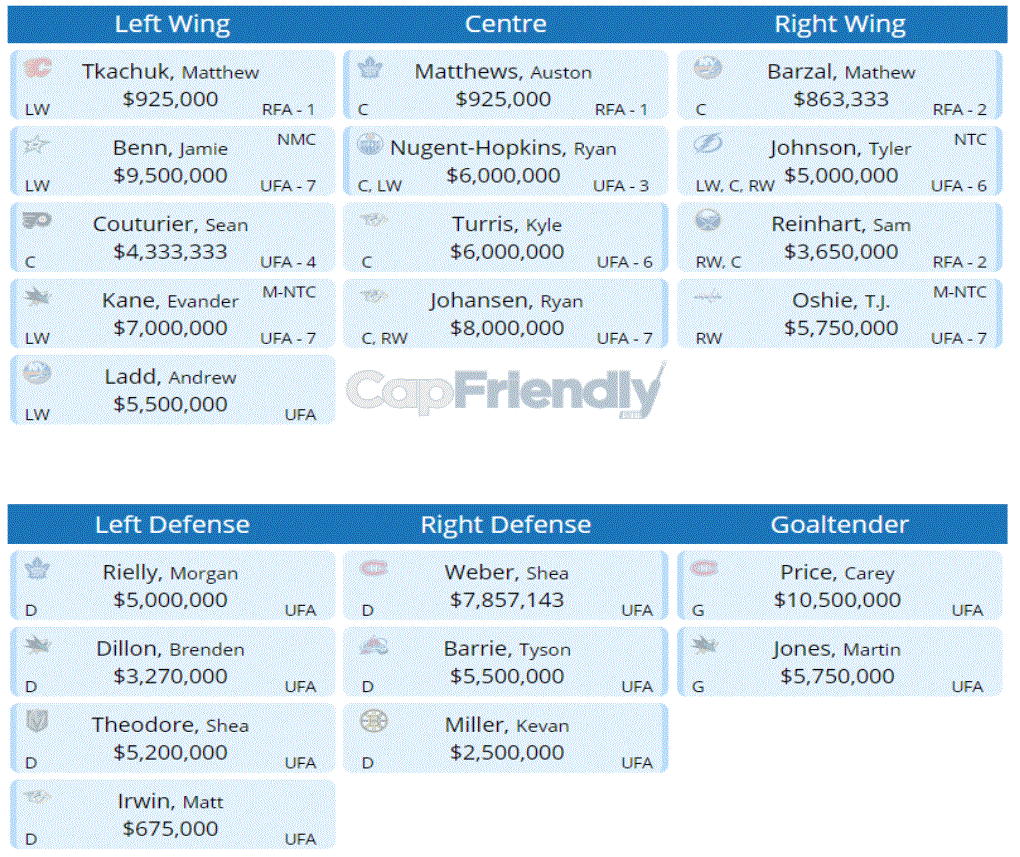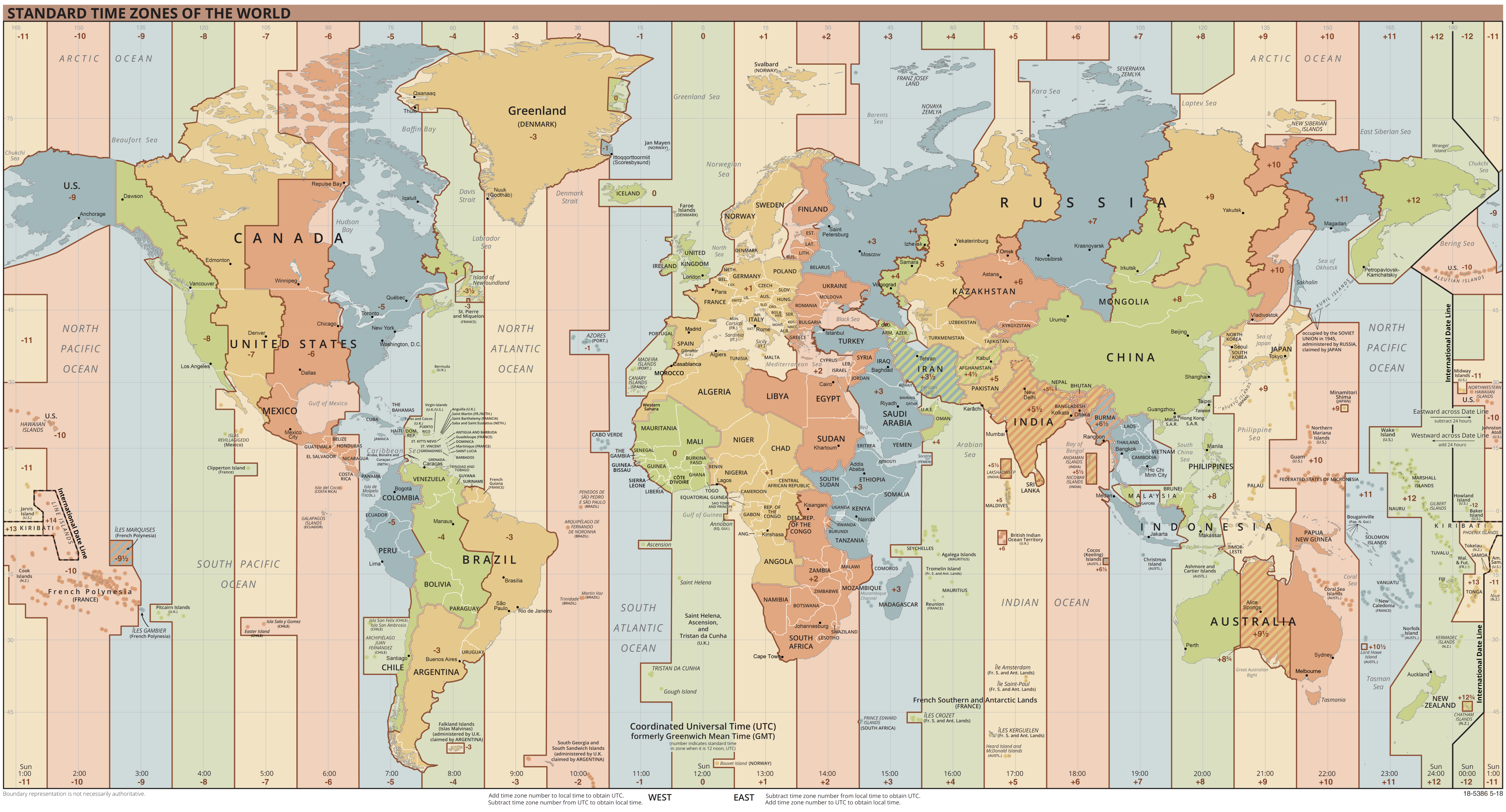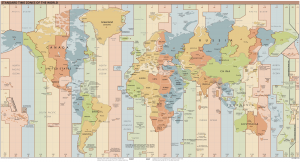Sports are generally fun. Reality is generally not as fun. Sports in the context of reality are fluctuating levels of fun and not as fun. Since I do not consider myself a masochist, I try to write fun stuff. And you know what’s fun? Making teams that are unlikely to exist, that are selected based on handpicked, whimsical parameters, and pitting them against each other.
After the wonderful writers at The Athletic went to the painstaking measures of projecting teams for Canada, the United States, Sweden, Russia, and Finland at the 2020 World Cup of Hockey, it was announced days later that the World Cup of Hockey is, at present, not happening. The 2014 Olympics feel like a decade ago, and meaningful international hockey does not look to be on the cards anytime soon. One cool concept introduced at the more relaxed 2016 World Cup was Team North America. Made up of the best 23-and-under players from the US and Canada, stars like Connor McDavid and Johnny Gaudreau joined forces to offer fans a glimpse into the NHL’s bright future. And with pieces being written recently by Sean McIndoe that aimed to field the best and worst teams possible using existing contracts, I started thinking. Thus, the Great Ice Hockey Time Zones World Cup was created.
National borders are so arbitrary, and yet we stage the biggest sporting events in the world (among other things) based on them. International hockey tournaments with NHL talent have always been played on tilted ice, with Canada winning three of the five Olympics in which players from the senior circuit have partaken. The US has closed the gap on Canada recently, but with Russia still developing talent using Soviet-era training methods and Finland, Sweden and others not quite having the depth to match the North American nations due to their smaller populations, it doesn’t seem that parity is near. It would be more intriguing to play a tournament with the people that celebrate New Years’ simultaneously with you. That’s right—forget national allegiances. On hockey’s biggest stage (soon—trust me), the sport’s foremost superstars will be suiting up for teams like “Coordinated Universal Time (acronym UTC—no idea how) negative six.” If you weren’t always friendly with middle school geography, here’s a map of the time zones.
The appeal is simple—we’re trying to break up the Canadian juggernaut by taking advantage of how much sheer landmass the True North spans, but we’re giving them the American studs directly south to add star power. Fortunately for us, the time zones in Canada are actually pretty nicely split down the borders of the provinces, so that sense of hometown pride will burn extra strong. I thought that we would run into an issue with the Scandinavians. Fear not, though—Sweden and Finland are actually in different time zones as well! The Finns do get the short end of the stick in that Sweden is aided by nations such as the Czech Republic in UTC +1, while Russia has no players of note until UTC +3, leaving our small but mighty nation of some five million stuck in the middle in UTC +2.
A conditional: it may have gleefully occurred to you, “Oh boy, Russia is SCREWED!” The world’s largest nation by landmass has already been struggling to churn out top young talent relative to previous levels for a few years now, and it spans eleven f*cking time zones! To level the playing field, I split Russia in two—Russia West will be the players hailing from UTCs +3 and +4 near Europe, while Russia East will be comprised of the legends in UTC +5 and east—from basically Siberia to holy-shit-that’s-actually-still-Siberia.
Finally, tragically, it is with much grief that I share with you that neither Sidney Crosby nor Nathan MacKinnon—probably two of the best five players in the world—will be part of this exercise. Both grew up in the province of Nova Scotia in Canada (population 950,000, UTC -3). There have only been a few dozen NHL players from Nova Scotia in history, and there are less than ten active players. Plus, if I added UTC -3 players to the UTC -4 team, well, this really wouldn’t be a contest at all. Other than that, however, one of the attractive features of the GIHTZWC is that every top player in the world besides Crosby and MacKinnon are on a squad. Players that generally wouldn’t get a chance to really compete for a medal, like Frederik Andersen of Denmark and Leon Draisaitl of Germany, will be surrounded with the types of teammates that will have them playing every match-up tight.
Global time zone supremacy is on the line. As a resident of UTC -4 (Eastern Standard Time) my whole life, I’m finally ready to lord over the hockey universe, with a little help from McDavid and John Tavares. Let’s break down the teams—lineups, strengths, weaknesses, and more—and find out where the best distance to live from the Prime Meridian is once and for all!
UTC -7 (British Columbia, Yukon, US Pacific Time)

Notable Omissions: Milan Lucic, Brooks Orpik
We start out in the west with the folks that get to wake up hungover at 10 on Sundays just in time for NFL football. And I’d say we have a good-looking team on our hands here, starting with the three young star forwards on the first line. Auston Matthews grew up in Phoenix, but was actually born in the Bay Area, and Matthew Tkachuk was born in Scottsdale while his father Keith was playing for the Phoenix Coyotes, fortunately for the -7s. Beyond those two, this team is made up of primarily British Columbians with big Vancouver and Victoria presences. All four lines on the -7 squad are more than capable of providing offense, and players such as Jamie Benn and Ryan Johansen will be counted on to bring a physical presence.
The Rielly-Weber first pairing on defense is arguably the best in this whole tournament, but the D-men beyond those two are underwhelming compared to the forwards. The Price-Jones goaltending tandem is excellent, and comes with a great storyline to boot. Price grew up in the minuscule town of Anahim Lake, BC—his mother being the former chief of the Ulkatcho First Nation—and he played organized hockey as a child 200 miles away in Williams Lake. Famously, his father bought a plane to make the trip to practices and games easier, and Montreal Canadiens fans will be forever grateful.
This team is not the best we’ll see on paper, but they cannot be overlooked. While the bottom four D-men aren’t world beaters, they hopefully won’t have to be given the speed and skill in the forwards, and the -7s will probably play some thrilling, free-wheeling hockey. They’re not my pick to win it all, but could very well medal if Price is on his game.
But what about all the other great time zone-based teams? I will be breaking down the whole world of hockey over the next few weeks, so make sure to visit the Georgetown Voice every few days. Next on the list is UTC -6 (Alberta, Saskatchewan, US Mountain Time). Who will be placed on this team? How good will they be? Stay tuned to find out.



